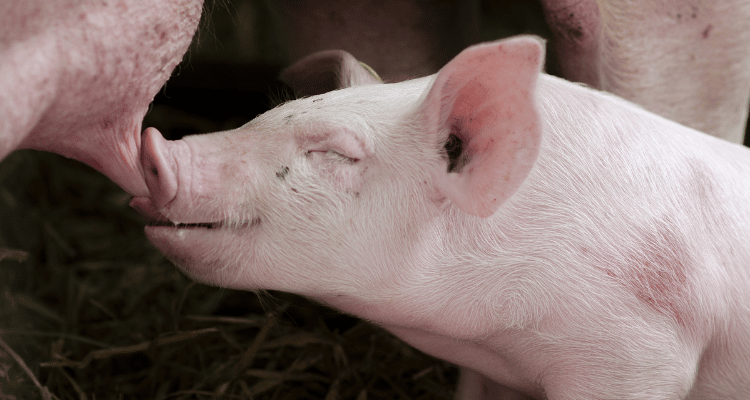Pichia guilliermondii for physiological support in sows and their offspring
As restrictions increase on the use of antibiotics in animals amid concerns about antimicrobial resistance, there is a growing interest in evolved management practices, including the use of non-drug specialty feed ingredients that may help to support the animal’s immune system, optimise their physiology and ensuing performance.
by Sarah Cooper, Business Development Manager, Pichia Yeast, published in International Pig Topics
One of the feed ingredients of interest are yeasts. Yeast cell walls contain various bioactive components such as b-glucans and mannan oligosaccharides, which have been demonstrated to have beneficial impacts across various species. Several studies have shown that dietary b-glucans interact with intestinal cells effecting modulation of the intestinal immune response.
Mannan oligosaccharides have been demonstrated to bind and limit the colonisation of intestinal pathogens with beneficial consequences related to gastrointestinal health and performance.
P. guilliermondii is a novel yeast with unique morphology, structure and distribution of cell wall components, and consequent activity. The function of P. guilliermondii and associated influence on physiological and performance parameters have been assessed across a variety of animal species.
This body of research has focused on looking at the impact that may be associated with P. guilliermondii on the immune system, pathogen load, gastrointestinal health and performance, especially during stress and pathogenic challenges.
It has been well established that stress of various sources, commonplace in sow production, can seriously impact sow reproduction. Maternal stress and foetal programming is well researched in human health and is an emerging theme in swine research efforts.
Foetal programming refers to acute or chronic stimuli impacting the foetus in utero, which may establish a permanent response within the foetus that impacts its physiologic function later in life. Therefore, the physiological status or wellness of the sow during gestation may influence her reproductive performance and the health of her piglets.
A series of peer-reviewed studies involving P. guilliermondii fed to sows during gestation and lactation have been performed looking at associated impacts on various parameters in sows and their offspring.
These studies demonstrate that supplementing the gestation and lactation diets of sows and gilts with an inactivated P. guilliermondii-based specialty feed ingredient promotes sow reproductive parameters, the performance of the sow’s offspring post-weaning and delivers profit.
Pichia supplementation
Reproductive performance in sows supplemented with P. guilliermondii during gestation and lactation has been assessed in numerous peer- reviewed studies in both research and commercial facilities, in the Unites States (US) and Europe.
Carry-over effects
A recent peer-reviewed study looked at commercial swine production facility in the US where 1,260 pigs were followed during the nursery, grow-finish phases. They were grouped according whether or not their sow has received 0.1% P. guilliermondii during gestation and lactation. Pigs weaned from sows that had received P. guilliermondii supplementation tended to have greater livability during both the nursery and grow-finish phases (Fig. 2) and finished significantly heavier compared to pigs weaned from sows that did not receive P. guilliermondii.
Consistent impacts
In order to more objectively assess the effects seen when P. guilliermondii is added to the gestation and lactation diets of sows, a meta-analysis was performed. The above-mentioned four peer- reviewed studies plus an additional four studies – a total of 1,446 sows – were included in the analysis of reproductive performance at birth until weaning.
The P. guilliermondii supplementation ranged from 0.1% to 0.2% and did not influence the effect of the product on the outcomes. Overall, P. guilliermondii supplementation in the sows was associated with an increased number of piglets born alive per sow (+3.5%, P<0.01; F).
When considering piglet survival before and after cross-foster, this resulted in more piglets weaned per sow (+5.3%, P<0.001; Fig. 5). In the assessment of the post-weaning phase, pigs weaned from sow supplemented with P. guilliermondii during gestation and lactation tended to have greater livability (Fig. 6) and significantly greater average daily gain (+5.7%, P=0.038;).
Pichia, Performance, Profit
The beneficial impact of P. guilliermondii supplementation in sows during gestation and lactation on litter size and weaned pig output has been demonstrated consistently across several studies and assessed through meta-analysis. The modes of action by which P. guilliermondii may impact sow litter size and weaned pig output are yet to be elucidated. It may be the case that P. guilliermondii, through its proposed modes of action, may promote resilience in the sow to overcome stressors, counteracting the negative effects of stress on reproduction, impacting foetal programming and consequent performance of offspring during lactation and post- weaning.
P. guilliermondii is commercially available as an inactivated specialty feed ingredient. Its inclusion in the gestation and lactation diets of sows and consequent impact on litter size and number of pigs weaned may facilitate improved swine production efficiency and profit.

